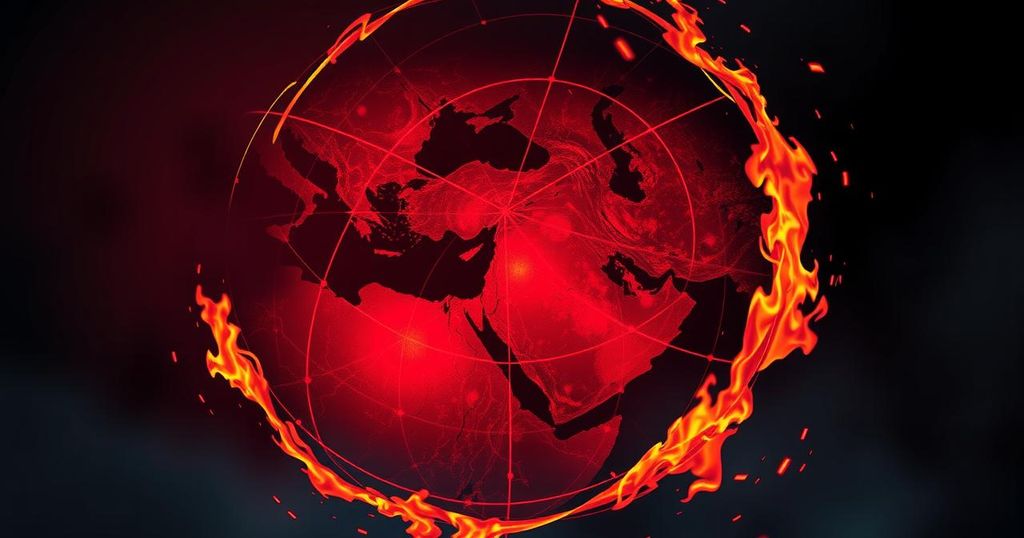Iran may seek to expand its influence around Israel through the potential resettlement of Palestinian refugees. Donald Trump’s plan risks destabilizing Jordan, raising fears about the influx of militants and economic strain. King Abdullah II has rejected this approach, emphasizing the need for Palestinians to remain on their land. Experts warn that such developments could threaten Jordan’s stability and relations with Israel.
Recent tensions suggest that Iran may intensify its efforts to create a ‘ring of fire’ surrounding Israel. With former President Donald Trump’s proposal to resettle hundreds of thousands of Palestinian refugees in Jordan and Egypt, concerns have arisen about potential destabilization in Jordan, one of the region’s most pro-Western nations. Experts have pointed out that hidden within these refugee currents may be Islamic militants sympathetic to Iran, endangering Israel’s security.
Trump has made assertions regarding the support of both Jordan and Egypt for his resettlement strategy, claiming it would provide safer living conditions for Palestinians. However, Jordanian authorities, led by King Abdullah II, have firmly rejected the plan, emphasizing the necessity of maintaining Palestinian presence on their land, aligned with a two-state solution.
Jordan faces additional internal challenges, as Iranian-affiliated activists seek to destabilize the pro-Israel constitutional monarchy, capitalizing on government discontent over its handling of Hamas support in recent years. King Abdullah is particularly apprehensive about jihadist elements potentially entering the kingdom among the influx of refugees from Gaza.
Experts warn that a significant influx of Palestinians into Jordan could inadvertently permit the infiltration of militant groups such as Hamas and Palestinian Islamic Jihad, which might attempt to establish influence in Jordan and access the West Bank. Such developments would threaten Jordan’s stability and its relationship with Israel.
Furthermore, Jordan’s economy is already strained, hosting approximately 2.3 million Palestinians and an additional 700,000 refugees from Syria, presenting significant challenges for the kingdom’s finances. The resettlement of more refugees would likely exacerbate public dissatisfaction, further endangering the government’s stability.
The article explores the geopolitical implications of Donald Trump’s proposal for the resettlement of Palestinian refugees in Jordan and Egypt. This proposal is met with apprehension from both Jordanian authorities and regional experts who warn of potential risks, particularly concerning the infiltration of Islamic militants aligned with Iran. The historical and demographic context involving Jordan’s existing Palestinian population and its economic challenges adds depth to the discussion of the region’s stability.
In summary, the potential resettlement of Palestinian refugees in Jordan poses significant risks, both in terms of national security and economic stability. Experts caution that the influx could enable the penetration of Iranian influence and jihadist elements into Jordan, threatening both its governance and its long-standing relationship with Israel. Conversations surrounding the proposal underscore the delicate balance of political and social dynamics within the region.
Original Source: www.express.co.uk






